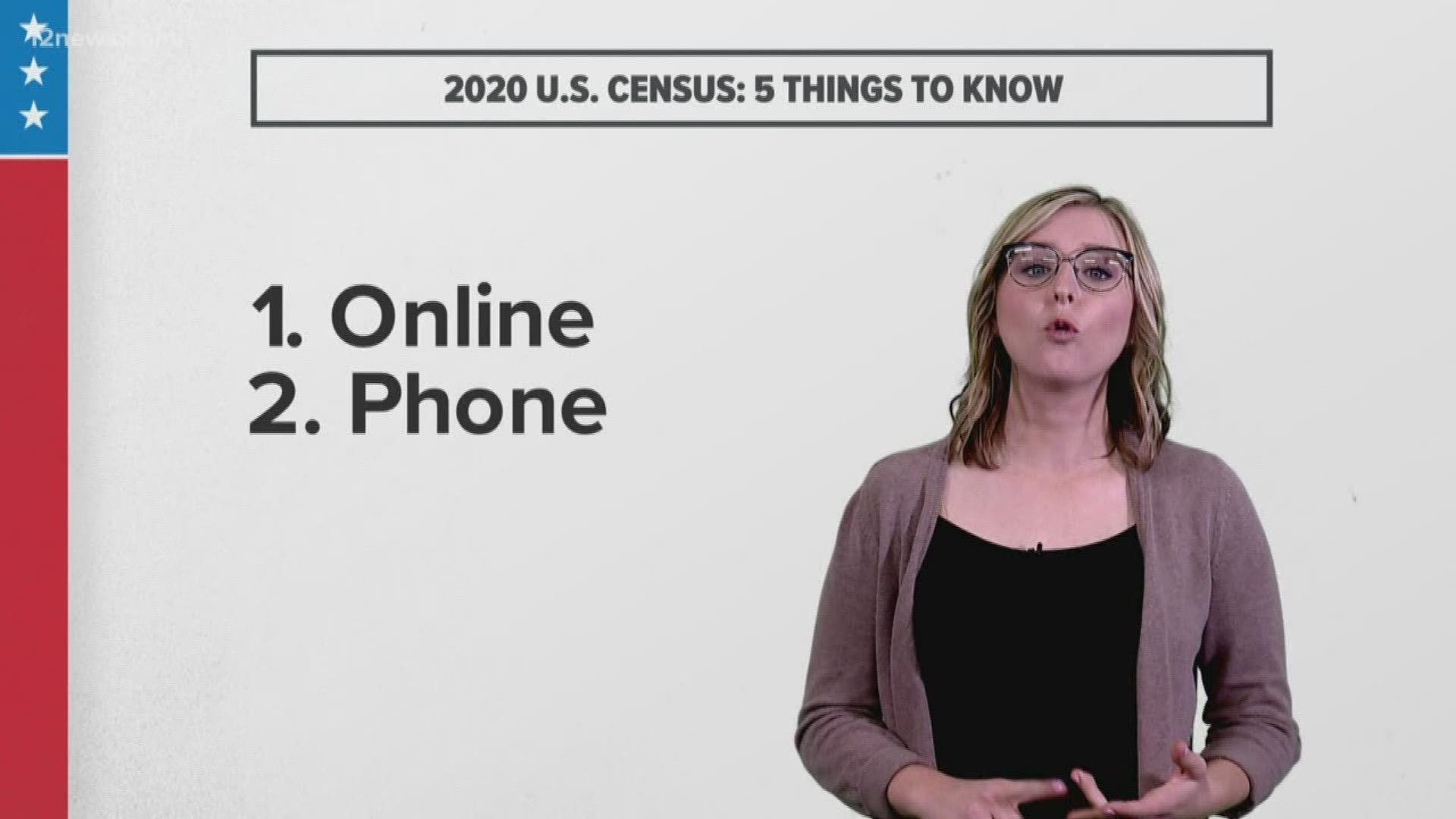PHOENIX — Every 10 years Americans are asked to fill out the census. And like many other things in 2020, this year’s census has been plagued with setbacks and confusion that could result in an undercount in Arizona.
The census counts all the people living in the United States and its five territories as mandated by the United States Constitution.
During a counting year, the U.S. Census Bureau sends a form to every residence and asks simple questions like how many people live in the home and what the ages, sexes and races are for each individual resident.
Alec Thomson, executive director of the Arizona Complete Count Committee said, "The federal government uses census data to determine the amount of funding that goes to each state based on its population. In addition to that, the number of Congressional seats that each state has is based on its population. Also, the private sector uses this data to make decisions like where to locate a hospital, where we need grocery stores. The state and cities also use this information to determine where we need new roads, where we need critical infrastructure that keeps our world moving."
A major part of the census count depends on in-person outreach to residences that don't self-respond. The disruption to in-person outreach this year, especially to Arizona's rural communities like the Havasupai Reservation, is a direct result of the pandemic.
"COVID-19 has definitely impacted our ability to reach a lot of those traditionally undercounted populations because we are not able to have that in-person outreach as much as we typically would have. A lot of those efforts had to switch to virtual outreach tactics. But a lot of the communities that we are targeting don't necessarily have access to those virtual platforms," said Thomson.
To complicate matters, the deadline for the census has been changed several times. The original deadline was July 31, 2020. That date would've allowed for the data collected to be presented to the president on Dec. 31, as is required by the Constitution.
The pandemic forced the July 31 deadline to be pushed back to Oct. 31. However, at the beginning of the month, the U.S. Census Bureau announced that the census would, instead, end on Sept. 30.
"The state has no control over the operations of the Census Bureau, the state just has to meet that deadline, so that's what they're doing with this. Without a doubt, it's going to have an impact," said Thomson.
Some of the people disproportionately affected by an undercount include those in rural areas, non-native English speakers, refugees and multi-family housing communities.
Census outreach workers have a difficult time in normal years reaching these people. But with the coronavirus and the truncated deadline, the workers’ ability to make contact and get an accurate count has become significantly more difficult.
But all Arizonans will be affected by an undercount. "The overall count impacts the representation that is apportioned to the state as well as the funding that comes into the state," said Thomson.
Thomson said that, conservatively, it is estimated that every Arizonan counted brings in $3,000 into the state. "An even more conservative estimate is that even with a 1 percent undercount the state stands to lose $60 million a year. That's $600 million over the next decade we would stand to lose."
Despite the pandemic and the new deadline, Thomson is hopeful that the Arizona Complete Count Committee will get an accurate count by the deadline.
"The state of Arizona and the Arizona Complete Count Committee is 100% committed to continuing our outreach in every way possible to make sure we are doing the best job we can to communicate to every Arizonan, especially our traditionally undercounted communities, that the census matters, that they count and responding is safe, it's easy and it's important," he said.
Currently, 61% of Arizonans have self-responded to the census, according to the U.S. Census Bureau. That is behind the national average response rate of 64.6%.
To see Arizona’s most current response rate to the census you can head here.
2020 is the first year that you can complete the census online, by mail, or over the phone. If you have not filled out the census yet, you can head here.
If you'd like to fill out the census by phone you can call 844-330-2020 to speak to someone in English or you can call 844-468-2020 to speak to someone in Spanish.
For non-English and non-Spanish speakers here is a list of numbers that you can call to speak to a representative at the U.S. Census Bureau in 12 different languages.

